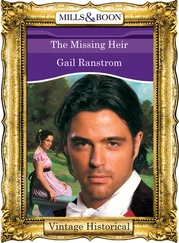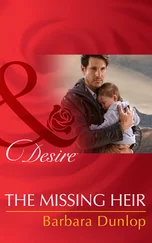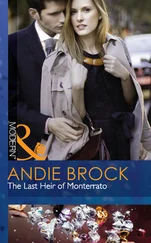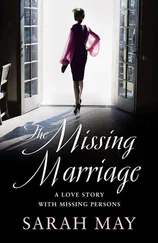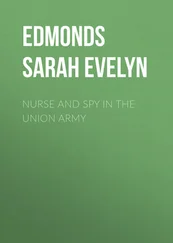Sarah Macnaughtan - Peter and Jane; Or, The Missing Heir
Здесь есть возможность читать онлайн «Sarah Macnaughtan - Peter and Jane; Or, The Missing Heir» — ознакомительный отрывок электронной книги совершенно бесплатно, а после прочтения отрывка купить полную версию. В некоторых случаях можно слушать аудио, скачать через торрент в формате fb2 и присутствует краткое содержание. Жанр: foreign_prose, foreign_antique, на английском языке. Описание произведения, (предисловие) а так же отзывы посетителей доступны на портале библиотеки ЛибКат.
- Название:Peter and Jane; Or, The Missing Heir
- Автор:
- Жанр:
- Год:неизвестен
- ISBN:нет данных
- Рейтинг книги:3 / 5. Голосов: 1
-
Избранное:Добавить в избранное
- Отзывы:
-
Ваша оценка:
- 60
- 1
- 2
- 3
- 4
- 5
Peter and Jane; Or, The Missing Heir: краткое содержание, описание и аннотация
Предлагаем к чтению аннотацию, описание, краткое содержание или предисловие (зависит от того, что написал сам автор книги «Peter and Jane; Or, The Missing Heir»). Если вы не нашли необходимую информацию о книге — напишите в комментариях, мы постараемся отыскать её.
Peter and Jane; Or, The Missing Heir — читать онлайн ознакомительный отрывок
Ниже представлен текст книги, разбитый по страницам. Система сохранения места последней прочитанной страницы, позволяет с удобством читать онлайн бесплатно книгу «Peter and Jane; Or, The Missing Heir», без необходимости каждый раз заново искать на чём Вы остановились. Поставьте закладку, и сможете в любой момент перейти на страницу, на которой закончили чтение.
Интервал:
Закладка:
The world, with its ever-ready explanation of conduct and its facility in finding motives, ascribed Sir Nigel's chronic impecuniosity to the fact that he contributed to the support of Mrs. Avory and her little girl. Mrs. Avory, who knew quite well what was said of her, ate her cold mutton for supper, and economized in coals in the winter, and paid her little weekly bills, and wondered sometimes what was the use of trying to be good when so few people believed in goodness.
Toffy came to see her every Sunday when he was in London; or, if he did not do so, Mrs. Avory wrote him long letters in very indistinct handwriting, and told him that it was all right, and that she really hoped he would marry and be as happy as he deserved to be. And the letters were generally blotted and blistered with tears.
Miss Abingdon put her key-basket upon the dressing-table and sat down in an armchair on the farther side of the room. It upset her very much to see Sir Nigel looking so ill, and she believed that to read the Bible at odd hours was a sign of approaching death.
'You must have some beef-tea at eleven,' Miss Abingdon said, and felt glad that she was able to do something in a crisis.
'I think I was brought up on beef-tea,' said Toffy. He had accepted, with his usual philosophy, the fact that whether you broke your back or your heart a woman's unfailing remedy was a cup of beef-tea.
'And I am sure you would like your own servant,' said Miss Abingdon; 'I suppose you have some one over at Hulworth for whom you could send?'
'My man is an awful thief,' said Toffy, 'which is why I keep him. Otherwise, I don't think there is a single thing he can do, except put studs in my shirts. Hopwood will only steal Peter's things,' he added reassuringly. 'He tells me my things are generally stolen and that I never have anything to wear, and so he borrows all he can from Peter. It is an extraordinary thing,' said Sir Nigel, beginning his sentence with his usual formula—the formula of the profound philosopher who has learned to accept most things as strange and all things as inexplicable—'It is an extraordinary thing the way all your possessions disappear. You try having duplicates, but, you know, Miss Abingdon, that's not a bit of use. The first man who comes along helps himself just because you 've two of a thing, so you 're not a bit better off than you were before, are you?'
The young man turned his blue eyes with their long lashes on Miss Abingdon with a look of mute inquiry, and threw one arm in its striped pyjama suit up on the pillow.
Miss Abingdon told herself that she was an old woman, and suggested, with outward boldness but with inward diffidence, that Sir Nigel required a wife to look after him.
The young man smiled gratefully at her. 'I think so too,' he said simply; 'but then, you see, she won't have me.'
They were all so amazingly frank! Jane's friend, Kitty Sherard, the girl who smoked cigarettes in her bedroom, had actually told a funny story one day about a flirtation of her father's, and had made everybody except Miss Abingdon laugh at it.
'Perhaps,' she said, 'the lady may change her mind.'
'I don't think she will,' said Toffy slowly. 'You see, she's married already.'
Miss Abingdon did not discuss such subjects. She glanced at her key-basket and moved uneasily in her chair.
'I 'm going to revise the marriage service when I 'm in power,' said the gentle, lagging voice from under the heavy canopy of old-fashioned chintz with which Miss Abingdon, who disapproved of draughts, hung all the beds in her house. 'You see, it's like this,' he went on; 'girls, when they are about eighteen or twenty, would generally like to improve on their parents a bit, and to have meals at different hours to those which they have grown tired of in their own homes; also, they have an idea that if they haven't a romance some time or other they will be rather out of it, don't you know, so they say "yes" to some fellow who proposes to them—you have done it yourself hundreds of times, I dare say, Miss Abingdon—but if you haven't the luck to get out of it, you are jolly well tied for the term of your natural life.'
'There are some very sad cases, of course,' said Miss Abingdon, drawing down her upper lip.
'And it's so often the good ones,' said Toffy, from the depths of his profound experience of life, 'who have the hardest lines. And that makes it all the more unfair, doesn't it?'
Afterwards, when Miss Abingdon used to hear a great deal about Sir Nigel and Mrs. Avory, and when many regrettable things were said concerning two people to whom, at the best of times, life was a little bit difficult, she would seem to see the young man, with his delicate face and his head bound up with white linen, lying on the frilled pillow of the great canopied bed, and the recollection would come back to her of the tones in which he had said, 'It's so often the good ones that have the hardest lines,' and Miss Abingdon never failed in loyalty to Toffy, and believed in him to the very end.
She rose now and bade him good-bye, and then she glanced at the open Bible on the counterpane and decided once more that young people were inexplicable, and she clung to her key-basket with a feeling of security, and, holding it carefully in her hand, went downstairs again.
CHAPTER IV
Jane, meanwhile, had walked over to Bowshott to see Mrs. Ogilvie and to tell her the news of Toffy's motor-car accident, and to explain why Peter was delayed. She came into the drawing-room, with its long mirrors in their gilded frames, its satin couches and heaped-up flowering plants, and huge windows looking on to the scrupulous gardens and park. She walked in the shortest dress that a merciful fashion allows, a loose shirt hung boy-like on her slender figure, and a motor-cap, with the brim well pulled down over her eyes, covered her head. She shook hands and regretted inwardly that Mrs. Ogilvie did not like being kissed, although disclaiming even to herself that her distaste in this respect had anything to do with rouge and powder. She sat down on a low chair by the window with the fearlessness of one whose complexion is not a matter of anxiety, and she told Mrs. Ogilvie the story of the disaster.
'Toffy's so awfully unlucky,' said Jane, with genuine sympathy showing in her eyes and voice; 'and the doctor says his hand will be bad for a week at least.'
'Is there such a thing as bad luck?' said Mrs. Ogilvie, shrugging her shoulders.
'You can't say Toffy gets his deserts!' pleaded Jane. 'He is always in debt, and his horses always come to grief, and there ought to be a syndicate formed to buy up all the shares that Toffy sells, because it is certain to mean that the market is going up. I think he must have been born under an unlucky star.'
'I used to get a lot of amusement from reading the Iliad of Homer,' said Mrs. Ogilvie. 'I know you cannot read or write, Jane, so I will tell you about it. It is a tale of men "warring against folk for their women's sake," and hindered often by the unscrupulous gods. Let us win when we can. Fate, without intelligence, orders the things which we do not order for ourselves, and it is very little use, but only a trifle absurd to feel sorry for the opponent who is beaten.'
'I am always sorry for the man who is down,' said Jane.
Mrs. Ogilvie smiled and rang for tea.
'You are one of those who can say, "I am sorry." Now, I am never sorry, and I consider that what is called repentance is the function of an idiot. If I do a thing, I intend to do it. Regret is the most weak-minded of all human emotions.'
'I 'm always regretting things,' said Jane, looking handsome and delightful, and treating even penitence from a fresh, open-air standpoint. 'But then I believe that as often as not I do the wrong thing, which is a great bore at times!'
Читать дальшеИнтервал:
Закладка:
Похожие книги на «Peter and Jane; Or, The Missing Heir»
Представляем Вашему вниманию похожие книги на «Peter and Jane; Or, The Missing Heir» списком для выбора. Мы отобрали схожую по названию и смыслу литературу в надежде предоставить читателям больше вариантов отыскать новые, интересные, ещё непрочитанные произведения.
Обсуждение, отзывы о книге «Peter and Jane; Or, The Missing Heir» и просто собственные мнения читателей. Оставьте ваши комментарии, напишите, что Вы думаете о произведении, его смысле или главных героях. Укажите что конкретно понравилось, а что нет, и почему Вы так считаете.



